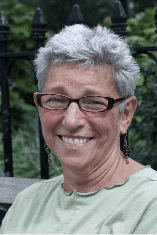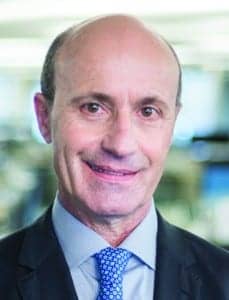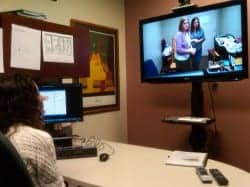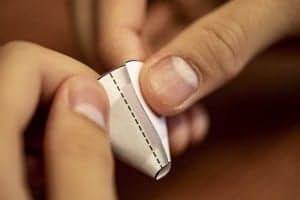Inside the Research | May 2018 Hearing Review
An extremely important and exciting movie called The Listening Project has recently been released that everyone in hearing healthcare should see—as well as legislators, educators, and parents. The movie was made by the award-winning film maker Irene Taylor Brodsky and Jane Madell, PhD, a renown expert in pediatric audiology. The film premiered on March 9 at the American Cochlear Implant Alliance’s CI2018 Emerging Issues in Cochlear Implantation Conference in Washington, DC.
We thought it would be a good idea to catch up with Dr Madell and learn more about the new documentary and some of her other endeavors. Dr Madell is an audiologist, speech-language pathologist, and LSLS auditory verbal therapist, with degrees from Emerson College (BA) and University of Wisconsin (MA, PhD). Her 45+ years of experience ranges from Deaf Nursery programs to positions at the League for the Hard of Hearing (director), Long Island College Hospital, and Beth Israel Medical Center/New York Eye and Ear Infirmary as director of the Hearing and Learning Center and Cochlear Implant Center.
Beck: Hi Jane! Always a joy speaking with you. Thanks for your time and congratulations on the new book!
Madell: Thanks Doug. We’re thrilled to announce the third edition of the Madell & Flexer Pediatric Audiology textbook1 will be published in 2018.
We’re also delighted to announce we’ve added two new editors, Jace Wolfe and Erin Schaefer. And the second edition of the Pediatric Audiology Casebook will also be launched at the same time—and both will be at AAA.
Beck: Wow. You’ve been busy! Who is publishing the new books?
Madell: Thieme Medical Publishers is publishing both. By the way, I should note that all four editors have also contributed to the case book, too.
Beck: Congratulations to you, Carol, Jace, and Erin. I am absolutely looking forward to reading both, and as you know, I refer to the 2nd edition of Madell & Flexer every week, so I guess I’ll have to be update my PowerPoints!
However, I’ll bet my favorite main theme remains congruent in the new book. Specifically, you clearly stated in the earlier editions: technology matters, and better technology leads to better outcomes.
Madell: Absolutely, we stand firmly entrenched in our belief of, and the necessity for, higher levels of technology across all devices: hearing aids, cochlear implants, remote mics, FM, and more.
Beck: And that might be a great segue into your new documentary, The Listening Project. The Listening Project trailer (visit https://vimeo.com/252962848) consists of a few minutes of interviews and outcomes with amazing young people, all of whom you diagnosed or treated and fit with various technologies, and all of whom participated in auditory based therapy, with remarkable success. I have to encourage every reader to click into the trailer. It’s fun, revealing, and authentic.
Madell: Thanks Doug. It’s wonderful to see their testimonials and interviews. I’ve known most of them since they were babies!
Beck: And so if I may ask…What was your motivation to create the documentary?
Madell: To be honest, as you know, I write the Hearing and Kids blog for Hearing Health Matters. I’ve been doing that for years and slowly, but surely, I felt like I was running out of things to say about pediatric audiology. And, at the same time, I was receiving an ever-increasing quantity of requests from the parents of newly identified children with hearing loss, and they wanted to know what to do to help their children grow to be successful adults. I decided it made sense to locate some of the children I had worked with—who are now adults—ask them how they are doing, what they felt worked for them, and what advice they had for parents of newly identified children with hearing loss.
Beck: We should point out, that despite the common thread of success shared by the young adults in the video, only one was identified at birth (as most children in the United States are in 2018). That is, most were referred to you after their parents noticed they were not developing speech and language skills. So they may have been a year, or two, or even three years old at the time of their initial diagnosis—which, in 2018, is very late!
Madell: That’s true. Some were diagnosed very late, but they have each done extremely well.
Beck: I agree, and that’s apparent in the trailer. Who actually made the film?
Madell: Thanks for asking that! Several years before we started on this project, Irene Taylor Brodsky, an Emmy and Peabody award winning documentary film maker and her husband brought their son, Jonas, to me to help them decide if he should be implanted. A few years later, I was doing a workshop in Portland Oregon, and Irene and her husband attended. After the presentation, we chatted for awhile, and I said to her “Irene, I have this idea…” I explained the concept and she said, “Let’s do it.”
We were very fortunate to receive a grant from the Oberkotter Foundation, and so Irene came to New York and we converted my living room into a studio and for a week. We interviewed 15 kids from across the USA, and recorded their memories and amazing stories. Some of them started life with body-worn FM systems while their parents had microphones, others progressed to cochlear implants. Each was different, and each a success. In fact, the video shows what happens when we diagnose early, provide technology with good-to-excellent audibility, assist families in providing language access, and allow children to listen. And, as you’ve noted, there is the trailer which the readers can click into, and there are two other versions of the film.
There’s a full-length 38-minutes version which is likely of maximal interest for parents, families, and professionals. We have a shorter 20-minute version which is designed to be shown in school classes to demonstrate what it’s like to have hearing loss. We hope this school version will help when a child with hearing loss is in a mainstream classroom. Some schools are showing the film to help teach empathy.
Beck: For readers interested in purchasing access to the documentary, you can go to www.thelisteningprojectfilm.org.
Madell: Exactly. Of course, we would like as many people as possible to see this film. That’s because 95% of all deaf children are born to hearing parents who have very little information about hearing loss. They have no idea how to begin.
Most people, when they think about deafness, think only about sign language. They don’t know that deaf children can listen and talk. They don’t know what’s possible, or what the long-term outcomes are for children who learn to speak and listen using modern, contemporary, professionally driven listening technologies.
Beck: I couldn’t agree more. I think you’ve published that some 80-85% of all deaf children are successfully mainstreamed—but because they are successfully mainstreamed, people don’t seem to realize that they’re there!
Specifically, if the parents know which options and opportunities are available, I believe most would elect hearing, if at all possible. In fact, your co-author [Carol Flexer] and I used to lecture together quite a lot, and I vividly recall her saying enthusiastically, there are no children who we cannot make hear!
Of course, we have excellent hearing aids for most children with hearing loss, and for children with severe and profound hearing loss, we have cochlear implants. For the very rare child born without a cochlea or an auditory nerve, we have brain stem implants (ie, auditory brainstem implants or ABIs). And so her point was that we have the ability to make anyone hear.
Madell: Exactly. And providing hearing as early as possible generally provides the best results. With newborn hearing screenings and with amazing 21st century technology, we can provide hearing for anyone. If the family chooses listening and spoken language, it is absolutely possible.
Beck: OK, so the documentary is fabulous, the trailer is a joy, and as long as I have you here for a few more moments, I’d like to get your thoughts on a few things! For example, what do you actually tell moms and dads, about their newly diagnosed deaf or hard-of-hearing children?
Madell: What I want parents to know right from the start is that, given the outstanding technology available today, every child can hear. We start with hearing aids always. I don’t usually mention cochlear implants right away. I wait for the right time, I never rush. But when the parents are ready I tell them something very much along the lines of what you just shared. That is, we need to figure out exactly what the very best technology is for your child, because each is different, and we always start with hearing aids, and then we’ll talk about the next step when the time is right.
Some children need cochlear implants and some don’t. Some parents are ready to talk about implants right away, and some are not. So we go at their pace. But the most important thing is, the technology we have in 2018 will allow your child to hear, and that will allow your child to listen and to learn to speak, and to become anything he or she wants to be.
Beck: And in some places, despite the FDA guidelines, I think we both know some children are implanted at 6 months in the United States, and in Australia they sometimes implant at 3 months. The goal is, of course, for the listening age to be as close to the chronological age as possible.
Madell: Exactly, and fortunately, cochlear implants (CI) are covered by just about all insurance programs. In fact, sometimes it’s easier to get CI coverage than it is for hearing aids!
Beck: Before I let you go, tell me your thoughts on advanced speech processing in hearing aids?
Madell: I think using the most sophisticated technologies is tremendously important for adults and children. To be specific, the better, faster, and most accurate noise reduction technologies are always worth investing in, as we’re developing brains and facilitating language development in children! I won’t go through any of the technologies in particular, but there have been several articles including one that you and Thomas Behrens recently authored, “The Surprising Success of Noise Reduction.”3 Further, our goal should be to provide whichever technology provides the best auditory access. That’s the goal.
Beck: And, in fact, I think it was about 3 or 4 years ago when you wrote that some 80% of everything a child learns is learned through incidental learning, or incidental hearing?
Madell: Yes, that’s correct. Given that children learn from overhearing, they need to be able to hear from more than one foot away! So again, it’s all about auditory access, and that’s why I always fit babies and children with FM systems in their CIs and their hearing aids.
Beck: Jane, one of my other favorite quotes is your response to the physician or the parent who says “the audiologist says they couldn’t test my child, so we’ll have to wait…”
Madell: I would respond, as I have many times, all children can be tested, even at birth. However, and importantly, not all clinicians can test every child. It takes a highly trained, talented, and motivated pediatric audiologist to get the information. However, when you find that audiologist, he or she can test any child, any time.
Beck: OK then…I know we’re into overtime and I have to let you run. Congratulations on what is certain to become another best-selling pediatric textbook, and please send my very best personal regards to Carol, Jace ,and Erin. Finally, a zillion congratulations on The Listening Project. It is overdue, it is insightful, and it is truly a joy to behold—and I think it needs to go viral.
Madell: Thanks Doug.
References
-
Madell JR, Flexer C, Wolfe W, Schaefer E. Pediatric Audiology. 3rd Ed. New York City: Thieme Publishers. In press. Available soon at: https://www.thieme.com
-
Madell JR, Flexer C. Pediatric Audiology Casebook. 2nd Ed. New York City: Thieme Publishers. In press. Available soon at: https://www.thieme.com
-
Beck DL, Behrens T. The surprising success of digital noise reduction. Hearing Review. 2016;23(5):20. Available at: https://hearingreview.com/2016/04/surprising-success-digital-noise-reduction/
About the author: Douglas L. Beck, AuD, is Executive Director of Academic Sciences at Oticon Inc, Somerset, NJ. He has served as Editor In Chief at AudiologyOnline, and Web Content Editor for the American Academy of Audiology (AAA). Dr Beck is an Adjunct Clinical Professor of Communication Disorders and Sciences at State University of New York, Buffalo, and also serves as Senior Editor of Clinical Research for the Hearing Review’s Inside the Research column.








I had no idea I had a hearing loss (I am 90 years old) until a year ago when I blew into a police whistle find out if I and could hear it; but noting came out. At first I shook it (my thinking) the ball inside was stuck! Then I sat down by my piano (with its 88 keys) and found I could not hear the tones beyond the last 12 keys. -I purchased a hearing aid eight years ago for my right ear; but I cannot hear word clearly. I think I am interest in a hearing aid implant: I wonder if the devise can be held on my head to then ascertain if the device will improve my hearing? Thanks for your interest. Noel Freedman Stanwood, WA